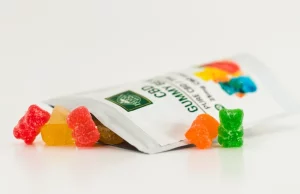When feeding puppies, there are various dietary options available, and one that has gained popularity in recent years is raw feeding. Raw feeding involves providing puppies with a diet that consists primarily of raw meat, bones, and other uncooked ingredients. Proponents of this diet believe that it mimics the natural diet of canines and offers several benefits for their overall health and well-being. However, like any dietary approach, raw feeding also has its share of potential drawbacks and concerns. In this article, we will explore the pros and cons of raw feeding for puppies to help you make an informed decision about what is best for your furry friend.
Pros Of Raw Feeding For Puppies
Nutritional Value and Digestibility:
One of the main advantages of raw feeding for puppies is the high nutritional value and digestibility of raw ingredients. Raw meat, bones, and organs provide essential nutrients, including proteins, healthy fats, vitamins, and minerals. These nutrients are in their natural, unprocessed form, making them easier for puppies to absorb and utilize. Additionally, selecting raw food for puppies enables you to offer a diverse selection of meats such as beef, chicken, lamb, and fish, which contributes to a comprehensive nutrient profile for their diet. This diversity can help prevent nutritional deficiencies and promote optimal growth and development in puppies.
Dental Health and Chewing Benefits:
Another benefit of raw feeding is its positive impact on dental health. Chewing on raw meaty bones promotes natural teeth cleaning and helps reduce plaque and tartar buildup. Gnawing on bones also exercises the jaw muscles and provides mental stimulation for puppies. By engaging in this natural behavior, puppies can maintain healthier teeth and gums, reducing the risk of dental diseases later in life. However, it is essential to choose appropriate bones that are safe and suitable for your puppy’s size and breed to avoid any choking hazards.
Cons Of Raw Feeding For Puppies
Risk of Nutritional Imbalances:
While raw feeding can provide numerous nutritional benefits, there is also a potential risk of imbalances if the diet is not carefully planned and prepared. Puppies require a specific balance of proteins, fats, carbohydrates, vitamins, and minerals to support their growth and development. Without proper knowledge and guidance, it can be challenging to achieve this balance consistently through a raw diet. Nutritional deficiencies or excesses can lead to various health issues, such as bone abnormalities, gastrointestinal problems, and immune system disorders. It is crucial to consult with a veterinarian or a professional animal nutritionist to ensure that your puppy’s raw diet is properly formulated and meets its specific nutritional needs.
Food Safety Concerns:
Raw feeding comes with inherent food safety concerns. Raw meat and other ingredients can be a source of bacteria, such as Salmonella or E. coli, which can pose a risk not only to puppies but also to humans in the household. Handling and storing raw food safely is crucial to minimize these risks. It is essential to maintain proper hygiene, thoroughly clean food preparation surfaces, and store raw ingredients separately from other foods. Additionally, puppies with compromised immune systems or underlying health conditions may be more susceptible to foodborne illnesses, making raw feeding potentially riskier for them.
Transition And Cost Considerations
Transitioning a puppy to a raw feeding diet requires careful planning and a gradual transition process. Abruptly switching from commercial puppy food to a raw diet can cause digestive upset and discomfort. It is recommended to introduce raw food slowly, mixing it with their current diet and gradually increasing the proportion of raw food over time. This allows the puppy’s digestive system to adapt and ensures a smoother transition. Moreover, it is important to note that raw feeding can be more expensive than commercial dog food. Raw ingredients, especially high-quality meats, can be costly, and the preparation and storage of raw meals require time and effort. Before committing to a raw diet, it is essential to assess your budget and ensure that you can provide a consistent supply of fresh and nutritious ingredients for your puppy.
Contamination And Parasite Concerns
Another potential concern with raw feeding is the risk of contamination and parasites. Raw meat, particularly poultry, can carry bacteria and parasites that pose health risks to both puppies and humans. Thoroughly washing and disinfecting all surfaces and utensils used during meal preparation is crucial to minimize the risk of contamination. Furthermore, freezing raw meat for a certain period before feeding can help kill any potential parasites. Regular veterinary check-ups and fecal examinations are also essential to monitor your puppy’s health and identify any signs of parasites or infections.
Lack Of Scientific Consensus
While many raw feeding enthusiasts passionately advocate for the diet’s benefits, it is important to note that there is a lack of scientific consensus regarding its long-term effects on puppies. Limited research exists on the subject, and most studies focus on adult dogs rather than puppies. Without comprehensive scientific evidence, it can be challenging to fully evaluate the potential benefits and risks of raw feeding for puppies. Therefore, it is crucial to gather information from reliable sources, consult with professionals, and monitor your puppy’s health closely if you choose to feed them a raw diet.
Digestive Sensitivity And Allergies
Some puppies may have sensitive digestive systems or food allergies, which can make raw feeding challenging. Raw meat and bones can be more difficult for certain puppies to digest, leading to gastrointestinal issues such as diarrhea or vomiting. Additionally, while raw feeding advocates often claim that it can help alleviate food allergies, it is essential to recognize that some puppies may have specific allergies or intolerances to certain raw ingredients. Identifying and managing these allergies within a raw diet can be complex and may require extensive trial and error. If your puppy has a history of digestive sensitivity or known food allergies, it is advisable to consult with a veterinarian before embarking on a raw feeding regimen.
Lack Of Nutritional Regulation And Standardization
Unlike commercial dog food, which undergoes rigorous testing and regulation to ensure it meets specific nutritional standards, raw feeding lacks such regulation and standardization. This can make it challenging for puppy owners to ascertain the exact nutrient composition of their homemade raw meals. Achieving a well-balanced diet with all the necessary nutrients can be particularly tricky for novice raw feeders. It is crucial to work closely with a veterinarian or an animal nutritionist to develop a balanced raw feeding plan that meets your puppy’s specific nutritional requirements.
Convenience And Practicality
Raw feeding for puppies requires careful meal preparation, storage, and handling. It can be time-consuming and may not be practical for every puppy owner, especially those with busy schedules or limited access to high-quality raw ingredients. Raw feeding also involves additional considerations when traveling or boarding your puppy, as finding suitable raw food sources or storing and transporting raw meals can be more challenging. It is important to assess your lifestyle and personal circumstances to determine if raw feeding is a feasible and sustainable option for you and your puppy.
While raw feeding has gained popularity among some puppy owners, it is important to carefully consider the potential challenges and drawbacks it presents. Digestive sensitivity and allergies, the lack of nutritional regulation, and the practicality of raw feeding should all be taken into account. Consulting with a veterinarian or animal nutritionist is crucial to ensure that your puppy receives a nutritionally balanced raw diet and to address any specific dietary concerns. Ultimately, the decision to feed your puppy a raw diet should align with your puppy’s individual needs, your lifestyle, and your ability to provide a safe, balanced, and convenient raw feeding regimen.














